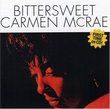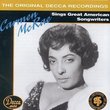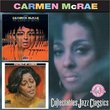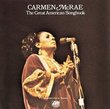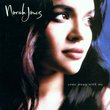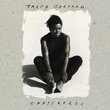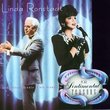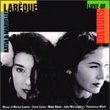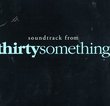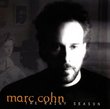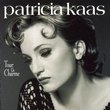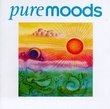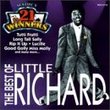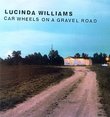| All Artists: George Shearing, Carmen McRae Title: Two for the Road Members Wishing: 0 Total Copies: 1 Label: Concord Records Release Date: 11/6/1989 Genres: Jazz, Pop, Broadway & Vocalists Styles: Cool Jazz, Vocal Jazz, Bebop, Oldies, Vocal Pop, Traditional Vocal Pop Number of Discs: 1 SwapaCD Credits: 1 UPC: 013431412823 |
Search - George Shearing, Carmen McRae :: Two for the Road
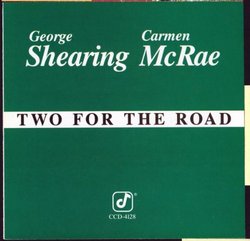 | George Shearing, Carmen McRae Two for the Road Genres: Jazz, Pop, Broadway & Vocalists
Japaneses XRCD digitally remastered release. ![header=[] body=[This CD is available to be requested as disc only.]](/images/attributes/disc.png?v=a4e11020) ![header=[] body=[This CD is available to be requested with the disc and back insert.]](/images/attributes/disc_back.png?v=a4e11020) ![header=[] body=[This CD is available to be requested with the disc and front insert.]](/images/attributes/disc_front.png?v=a4e11020) ![header=[] body=[This CD is available to be requested with the disc, front and back inserts.]](/images/attributes/disc_front_back.png?v=a4e11020) |
Larger Image |
CD DetailsSynopsis
Album Details Japaneses XRCD digitally remastered release. Similar CDs
Similarly Requested CDs
|
CD ReviewsJazz Royalty Meets fastfeet76 | NY, NY United States | 08/14/2001 (5 out of 5 stars) "Dinah, Billie, Nancy, Shirley Horn, Etta (Jones & James) -- I, personally prefer all of their later life voices; Carmen is no exception. This 1980 session finds her paired with piano great George Shearing. Shearing is obviously a giant in his own right, pioneering a sound in the 50's and 60's that was purely his creation. Fortunately for vocalists he is what they consider a singer's piano player (in great company with folks like Sir Roland Hanna, Hank Jones and Tommy Flanagan). When backing a singer of McRae's magnitude he lays back and grooves, never infringing on the vocals, simply making them all the better. (For more proof of this check out his recordings with Nancy Wilson, Mel Torme and Peggy Lee) A most welcomed surprise from this session is a vocal duet between McRae and Shearing that is simply magic. Carmen's reading of "If I Should Lose You" is haunting. And she is in her finest swingin' form on "Gentleman Friend" -- Dig Shearing's 2-fisted playing on the latter track, sounds like a whole rhythm section in his left hand. Mcrae fans and Shearing fans alike should truly appreciate the history that is made when 2 musicians of this magnitude record together." Worthy but not memorable pairing. Samuel Chell | Kenosha,, WI United States | 02/01/2001 (4 out of 5 stars) "One of the top 5 jazz singers to come along in my lifetime, Carmen sounds shaky and tentative on this outing. At times I get the feeling that she's trying to make up in dramatic interpretation what she's missing vocally on this date. Shearing's accompanying, soloing, and even singing (of Mancini's underrated, gorgeous ballad, "Two for the Road") is as sterling as the support he offers on similar albums pairing him with Peggy Lee, Nancy Wilson, and Mel Torme. But here Carmen does not always rise to the occasion. After an exquisite and extended interpretation of "Too Late Now," Shearing yields to the entrance of the vocalist. One almost wishes he hadn't." Sheer Magic Mary Whipple | New England | 11/25/2005 (5 out of 5 stars) "As one who is accustomed to hearing Carmen McRae, a huge favorite, accompanied by a sax or other instruments of low timbre, I was unprepared for the magic which occurs here in this 1980 album, where she records with George Shearing for the first time. Shearing's light touch on piano, especially in the high range, contrasts dramatically with her deep, dark voice, but both artists share the same feeling for words and music, and both can build on the moods and interpretations of the other. Since they apparently never rehearsed a single note of this album, recording direct the first time they worked each song, their synchronicity is especially remarkable.
Experts on the slow, moody jazz ballad, McRae and Shearing play off each other from the first song, "I Don't Stand a Ghost of a Chance," in which the clear, high notes of Shearing's "tinkly" accompaniment set McRae's low range into sharp relief. In the emotional "More Than You Know," Shearing's piano lends a sweetness and even femininity to her dramatic but very quiet treatment of the lyrics. "Gentleman Friend," a toe-tapping, less familiar, and upbeat song (the only one on the CD) features Shearing's jazz variations, McRae's vocal variations, and the two of them coordinating naturally for her scat and his improvisations in the spontaneous conclusion. Among the exciting (and sometimes unfamiliar) songs here, two stand out for me. "Cloudy Morning" became an instant favorite, with Shearing creating a romantic, moody impression with sounds of thunder in the piano bass. His singing voice is much darker and deeper than McRae's, of course, and when she answers his lyrics, she does so with an uncharacteristic delicacy which makes the harmony of their duet a "chicken skin moment." "Too Late Now," contains a haunting piano intro, as Shearing creates clear, bell-like chords, arpeggios, runs, and key changes for 2:41 minutes before McRae enters quietly to maintain the mood and sadness. A brilliant collaboration between two of the great stars of jazz, this CD features both stars at their best, but Shearing's piano also makes McRae sound more vulnerable--less dramatically assertive than usual--as she sings torchy and impassioned lyrics--a lovely change of pace. Mary Whipple " |

 Track Listings (10) - Disc #1
Track Listings (10) - Disc #1